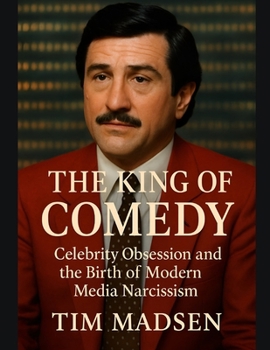The King of Comedy: Celebrity Obsession and the Birth of Modern Media Narcissism
What if the most disturbing film about fame wasn't fiction-but a blueprint?
Martin Scorsese's 1982 film The King of Comedy was once seen as a dark, eccentric satire about one man's obsession with becoming famous. Today, it reads like prophecy. In an era where social media influencers, reality TV stars, and viral personalities dominate public consciousness, Rupert Pupkin-the film's delusional antihero-feels less like a cautionary tale and more like a cultural prototype.
The King of Comedy: Celebrity Obsession and the Birth of Modern Media Narcissism is a penetrating, wide-ranging exploration of how fame evolved from a reward for accomplishment into a spectacle driven by visibility alone. Using Scorsese's film as a starting point, this book traces the rise of media narcissism, the collapse of shame, the explosion of parasocial relationships, and the transformation of identity into performance.
Divided into ten incisive chapters, the book examines how traditional ideas of success were replaced by the pursuit of attention, how digital platforms erased the boundary between celebrity and audience, and how society has become complicit in elevating spectacle over substance. Blending film criticism, cultural theory, media studies, and contemporary case studies, it offers both a diagnosis and a reckoning.
The King of Comedy was never just a movie. It was a mirror. And now, it reflects all of us.





